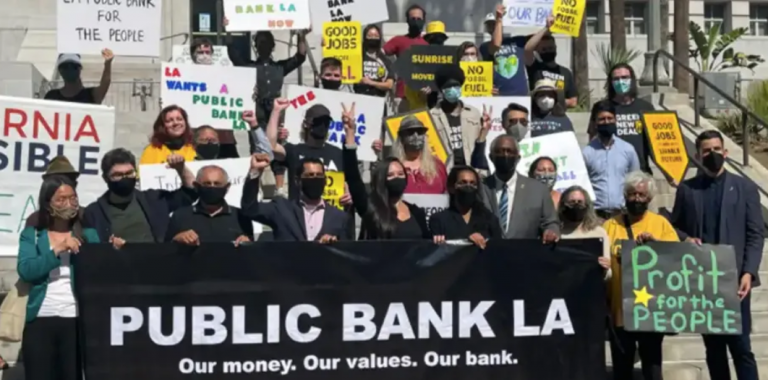From Coast To Coast, The Public Banking Movement Grows
After years of being considered a niche concept, relegated to a few academic articles and zealous activists, the idea of public banking is about to hit the mainstream. From coast to coast, 2025 witnessed a blossoming of support for public banking, especially on the local level. Not only did several activist groups hold conferences to drum up support for public banking, but numerous municipalities took concrete actions to inch closer to creating their own public banks, and politicians who supported public banking achieved historic victories during the most recent election.















